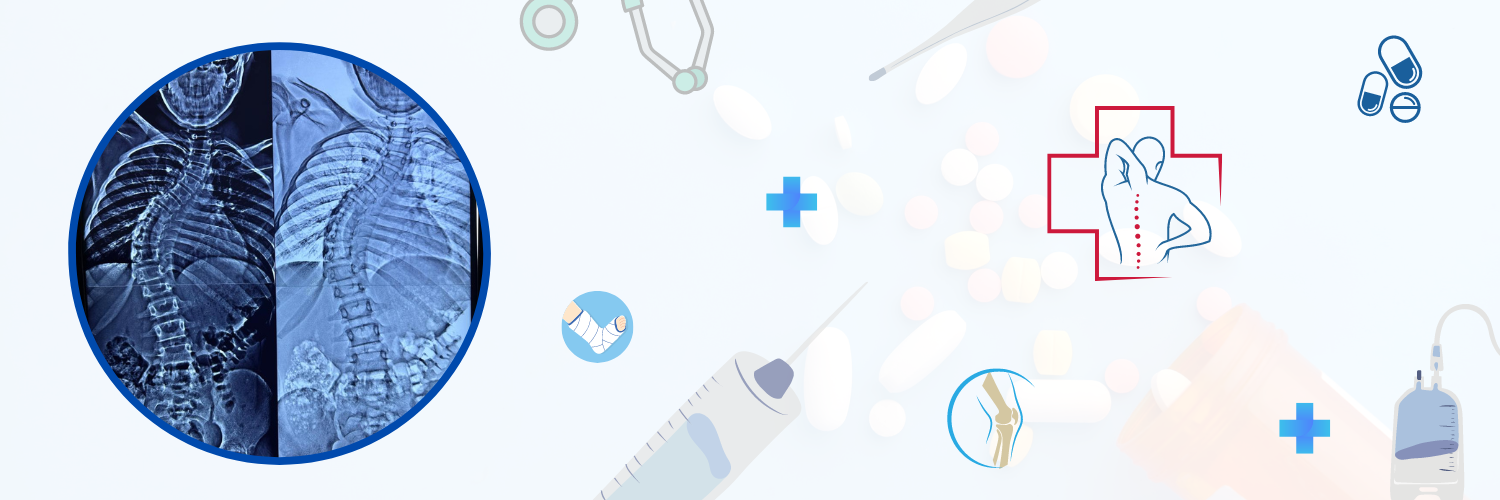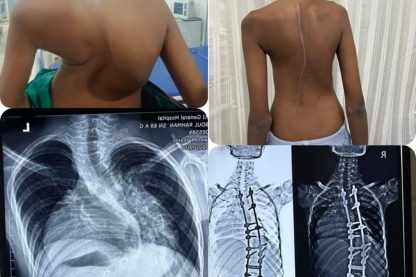At Riya Super Speciality Ortho Hospital, we specialize in Spine and Scoliosis Correction, utilizing state-of-the-art techniques and advanced equipment to ensure optimal outcomes for our patients.
Spine and Scoliosis Correction
Congenital Scoliosis
Congenital scoliosis arises from the failure of vertebral segmentation and/or formation during fetal development, resulting in curvature of the spine. This developmental issue occurs around the 4th to 6th week of gestation. Congenital scoliosis is categorized based on its progression potential: non-progressive, mildly progressive, or highly progressive.
Treatment Options
At Riya Super Speciality Ortho Hospital, we provide a range of treatment options tailored to the severity of the condition. These may include observation, bracing, or surgical intervention, depending on the individual case and the potential for curve progression.
Patient-Centered Approach
Our dedicated team prioritizes patient safety and comfort, using advanced imaging and surgical techniques to achieve the best possible results. We are committed to providing comprehensive care throughout your treatment journey.
Health Tips & Information
At Riya Super Speciality Ortho Hospital, we offer personalized care tailored to your orthopedic needs. Our team is here to guide you through your treatment plan, addressing any questions or concerns you may have. With a strong reputation for excellence, we are recognized for delivering advanced treatments and achieving superior patient outcomes.
Scoliosis correction refers to surgical and non-surgical methods aimed at reducing the curvature of the spine and improving alignment, particularly in cases of congenital scoliosis.
Congenital scoliosis is caused by abnormalities in vertebral development during the early stages of pregnancy, leading to improper formation or segmentation of the vertebrae.
Treatment for congenital scoliosis varies based on the severity of the curvature and can include observation, bracing, or surgical intervention to correct spinal alignment.
Bracing is used in certain cases of scoliosis to help stabilize the spine and prevent further curvature as the patient grows, especially in children and adolescents.
Potential complications of scoliosis surgery can include infection, nerve damage, blood loss, and issues related to anesthesia. Our expert team carefully assesses risks and benefits before proceeding with surgery.

